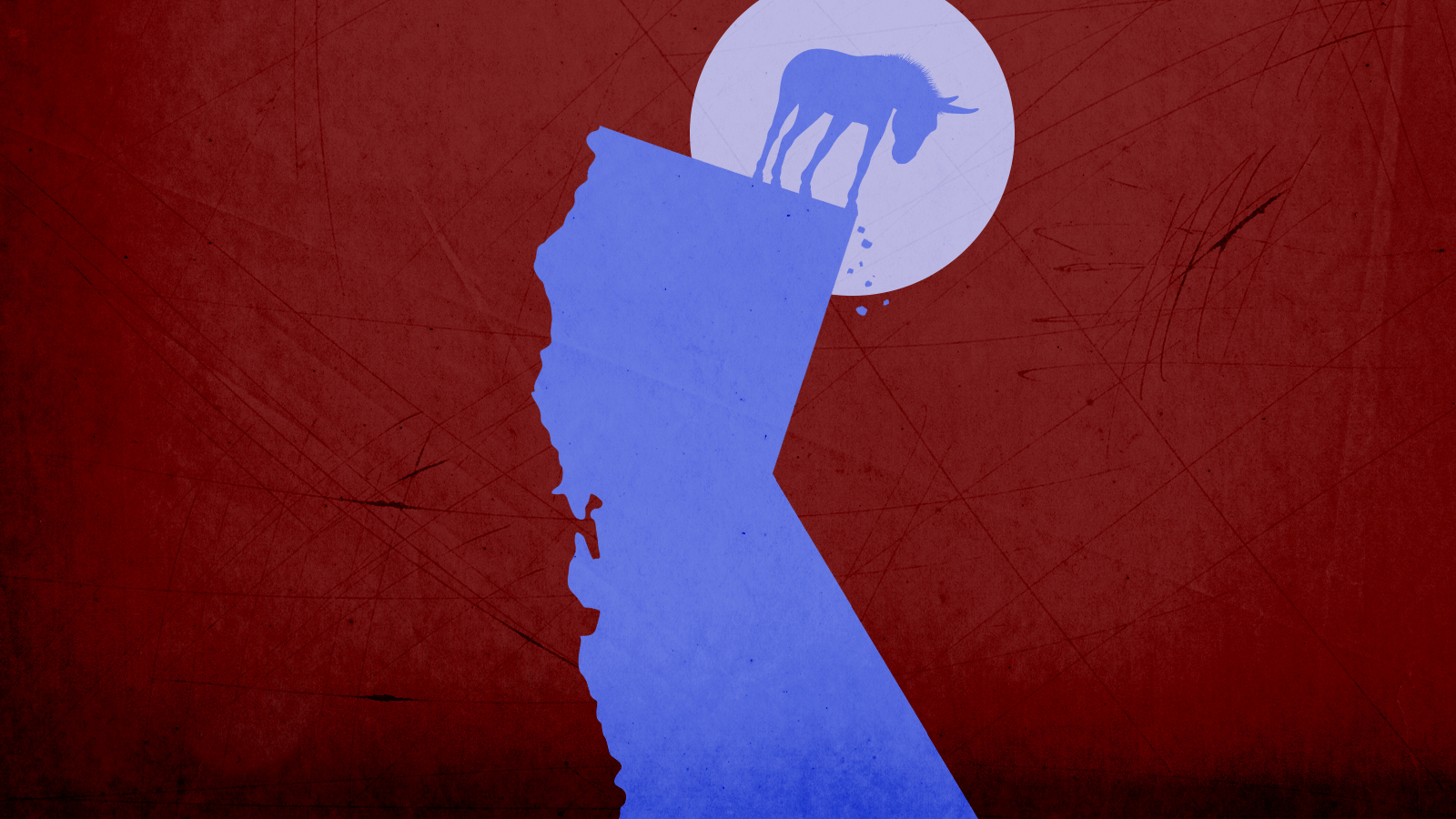There's a warning sign for Democrats in their California blowout


A free daily email with the biggest news stories of the day – and the best features from TheWeek.com
You are now subscribed
Your newsletter sign-up was successful
California Gov. Gavin Newsom easily prevailed in Tuesday's recall election. That's obviously very good for Democrats, who rallied to his side both in the state and nationally, during the final weeks of the contest. But that doesn't mean all the news for the Democrats was encouraging.
If exit poll results are verified by precinct-level data over the coming days and weeks, it will indicate that a recent trend in support for the party has continued and possibly deepened over the past few years. That could spell trouble for the Democratic Party over the coming years.
As Steve Kornacki of NBC News pointed out in a pair of tweets, the composition of Newsom's winning coalition appears to have shifted since he was elected three years ago. Whereas in 2018 he won 59 percent of white voters with a college degree, on Tuesday he looks to have won roughly 68 percent of such voters. Meanwhile, his share of the Hispanic vote has fallen from 64 to 58 percent and his share of the Black vote has gone from 86 to 81 percent. Moreover, Newsom's margin of victory significantly improved relative to 2018 in counties with the highest concentration of white voters with college degrees.
The Week
Escape your echo chamber. Get the facts behind the news, plus analysis from multiple perspectives.

Sign up for The Week's Free Newsletters
From our morning news briefing to a weekly Good News Newsletter, get the best of The Week delivered directly to your inbox.
From our morning news briefing to a weekly Good News Newsletter, get the best of The Week delivered directly to your inbox.
This shift in the composition of the Democratic Party — with it becoming whiter and better educated — won't hurt its prospects in California, a state in which registered Democrats vastly outnumber registered Republicans and independent voters. But elsewhere — nationally and in the rust-belt swing-states of the Midwest — it will likely keep the GOP competitive, preventing the Democrats increasing their margins in Congress and state legislatures.
That's because Americans with college degrees are vastly outnumbered by those without them. A Republican Party that defines itself as standing culturally with the latter group and against the former will have a much larger pool of voters to draw on. That edge will increase further if the educational divide overrides the partisan salience of race and ethnicity, as it is already beginning to do. (College degree-holders are overwhelmingly white.)
A GOP that successfully bills itself as the champion of a multicultural coalition of non-college-educated voters will be difficult to beat in many places.
We don't yet know if Republicans will be capable of transforming the GOP into a culturally based working-class party. All we can say is that the California exit polls appear to show that just such a transformation, already begun, is continuing apace.
A free daily email with the biggest news stories of the day – and the best features from TheWeek.com
Damon Linker is a senior correspondent at TheWeek.com. He is also a former contributing editor at The New Republic and the author of The Theocons and The Religious Test.
-
 The ‘ravenous’ demand for Cornish minerals
The ‘ravenous’ demand for Cornish mineralsUnder the Radar Growing need for critical minerals to power tech has intensified ‘appetite’ for lithium, which could be a ‘huge boon’ for local economy
-
 Why are election experts taking Trump’s midterm threats seriously?
Why are election experts taking Trump’s midterm threats seriously?IN THE SPOTLIGHT As the president muses about polling place deployments and a centralized electoral system aimed at one-party control, lawmakers are taking this administration at its word
-
 ‘Restaurateurs have become millionaires’
‘Restaurateurs have become millionaires’Instant Opinion Opinion, comment and editorials of the day
-
 Big-time money squabbles: the conflict over California’s proposed billionaire tax
Big-time money squabbles: the conflict over California’s proposed billionaire taxTalking Points Californians worth more than $1.1 billion would pay a one-time 5% tax
-
 Gavin Newsom and Dr. Oz feud over fraud allegations
Gavin Newsom and Dr. Oz feud over fraud allegationsIn the Spotlight Newsom called Oz’s behavior ‘baseless and racist’
-
 Did Alex Pretti’s killing open a GOP rift on guns?
Did Alex Pretti’s killing open a GOP rift on guns?Talking Points Second Amendment groups push back on the White House narrative
-
 Washington grapples with ICE’s growing footprint — and future
Washington grapples with ICE’s growing footprint — and futureTALKING POINTS The deadly provocations of federal officers in Minnesota have put ICE back in the national spotlight
-
 Trump’s Greenland ambitions push NATO to the edge
Trump’s Greenland ambitions push NATO to the edgeTalking Points The military alliance is facing its worst-ever crisis
-
 Why is Trump threatening defense firms?
Why is Trump threatening defense firms?Talking Points CEO pay and stock buybacks will be restricted
-
 The billionaires’ wealth tax: a catastrophe for California?
The billionaires’ wealth tax: a catastrophe for California?Talking Point Peter Thiel and Larry Page preparing to change state residency
-
 Trump considers giving Ukraine a security guarantee
Trump considers giving Ukraine a security guaranteeTalking Points Zelenskyy says it is a requirement for peace. Will Putin go along?
